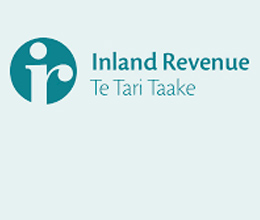Child support
OVERVIEW
Here you'll find out about the child support scheme, which is managed by Inland Revenue. The Family Court can become involved with child support if the arrangements need to be appealed or reviewed, or if one parent is living outside New Zealand or Australia.
On this page:
- What is child support?
- How Inland Revenue calculates child support
- Types of child support arrangements
- If you disagree with Inland Revenue about child support
- When the Family Court is involved
What is child support?
Inland Revenue (IR) manages the child support scheme under the Child Support Act 1991(external link). Child support is money paid by parents who either:
- don’t live with their children, or
- share care of their children with another person.
This usually happens if two parents separate. Money received through child support is used to cover the costs of raising the child or children.
The amount of child support to be paid depends on how much each parent earns and how much time the child spends living with each parent.
How Inland Revenue calculates child support
Inland Revenue calculates the amount to be paid using a formula assessment. If you have to pay child support, you’re called the liable parent. The other parent is called the receiving carer.
For a child to be covered by the scheme (a qualifying child), they must be a New Zealand citizen or an ordinary resident.
The Child Support Act covers child maintenance arrangements for families living in New Zealand and families where one of the parents lives in Australia. However, you may be able to get child support under the Family Proceedings Act 1980 even if you or the other parent lives outside of New Zealand and Australia.
Types of child support arrangements
There are three ways of making child support arrangements:
- You can make a private agreement with your ex-partner, where you both agree on the amount and frequency of child support payments. You then organise payments and resolve issues between yourselves. You don't need to have a formal document for this agreement, and it's not registered with Inland Revenue.
- You can make a more formal voluntary agreement with your ex-partner, which is a written child support agreement that's registered with Inland Revenue. You and your ex-partner agree on the amount, but Inland Revenue takes care of collecting and paying the money, as well as following up on missed payments.
- Inland Revenue can make a formula assessment if you and your ex-partner can't agree on the arrangements. Inland Revenue will calculate the amount to be paid. If the child support isn't paid, Inland Revenue can ask the Family Court to enforce payments
For more on these types of agreements, see the IR website(external link)
If you disagree with Inland Revenue about child support
If you disagree with a child support decision or assessment, you should first try to sort it out with Inland Revenue. Call Inland Revenue on 0800 221 221 or see their website(external link). The website explains how to make your objection.
You can then write to Inland Revenue explaining why you disagree with its decision or your assessment, or complete Inland Revenue's Notice of Objection – child support form within Inland Revenue's timeframe.
If Inland Revenue disallows (rejects) your objection, you can appeal to the Family Court.
When the Family Court is involved
In some cases, you can ask the Family Court for help when you're concerned about child support.
The Family Court can become involved if:
- you’re unhappy about how much Inland Revenue is telling you or the other person to pay and Inland Revenue has already done a review
- you’re not paying your child support and Inland Revenue has asked the court to make sure you do
- one parent lives outside of New Zealand and Australia
The Family Court can:
- hear appeals of decisions the Commissioner of Inland Revenue has made
- have payments calculated in a different way by making a Departure Order
- declare that a person is a step-parent of a child
- change the formula assessment for a child
- order lump sum payments
- change lump sum payments or any Court Order that changed an assessment
- cancel any voluntary agreements
- enforce payments under the Child Support Act 1991.
